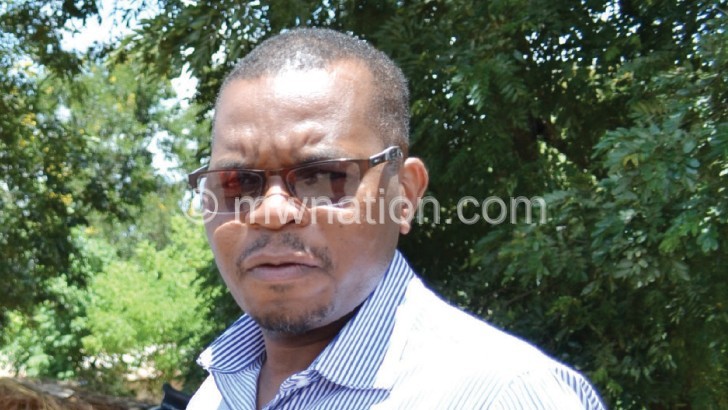Civil servants’ union, GOVT FAIL TO AGREE AGAIN
No progress. That was the outcome of the pay rise discussion between the Government Negotiating Team (GNT) and Civil Service Trade Union (CSTU) which failed to break the deadlock on the workers’ demands for a 45 percent salary hike.
In an interview, last night after the meeting that started at 2 pm and ended at 7.55pm in Lilongwe, CSTU secretary general Madalitso Njolomole said the union will meet its membership this morning to decide the way forward.

Hiwa
He said: “We [the union] will brief the civil servants about the outcome of today’s meeting tomorrow [today]. For now, just know that we were locked in a heated debate and we will decide our action tomorrow.
“We are just calling all civil servants to come to Capital Hill tomorrow [Wednesday] to brief them. We don’t want to pre-empt the discussions now.”
Minister of Finance, Economic Planning and Development Goodall Gondwe, in his 2017/18 National Budget Statement read in Parliament, announced a 10 percent performance-based salary increment for civil servants. However, the civil servants rejected the offer and are now pushing for 35 percent more to make it 45 percent.
This is the second time in five days that the CSTU and GNT have failed to break the deadlock on the issue. On Friday, after the first deadlock, the civil servants gave the government an ultimatum until yesterday to agree to their demands or face a nationwide strike that will cripple public service delivery.
Economic analysts have warned that the 45 percent salary increment demand by the civil servants, though justifiable, may exert undue pressure on the national budget and will likely derail the macroeconomic gains the country has registered in the 2016/17 financial year.
In an interview yesterday, economist Henry Kachaje, who is also president of Economics Association of Malawi (Ecama), feared the demands could derail the International Monetary Fund (IMF) Extended Credit Facility (ECF) programme.
He said: “As much as the salary increment might be justifiable based on the prevailing high cost of living, the size of our economy cannot sustain the size of our public sector wage bill.
“Tough decisions have to be made and reducing the size of the civil service and incentivising those retained is an option on the table.”
Kachaje also advised the government to find a lasting solution to the salary issues, saying if they wait for people to protest the raise will not help.
Currently, the civil servants are demanding for at least a minimum of K75 000 payment to the least paid officer who now receives K61 000 before tax. The 10 percent increment that has been proposed means that the least paid worker will have a K5 000 salary increment.
The civil servants’ push for higher pay rise comes against the background of a warning from the IMF on the wage bill while strengthening tax compliance to mobilise enough resources in line with the country’s development goals.
Following a 15 percent pay hike for the public sector last July, the public sector wage bill rose by K22 billion to K264 billion, which, according to Treasury, was 23.3 percent of total expenditure in the K1.3 trillion 2016/17 National Budget.
Representatives of the GNT were not immediately available for comment.





